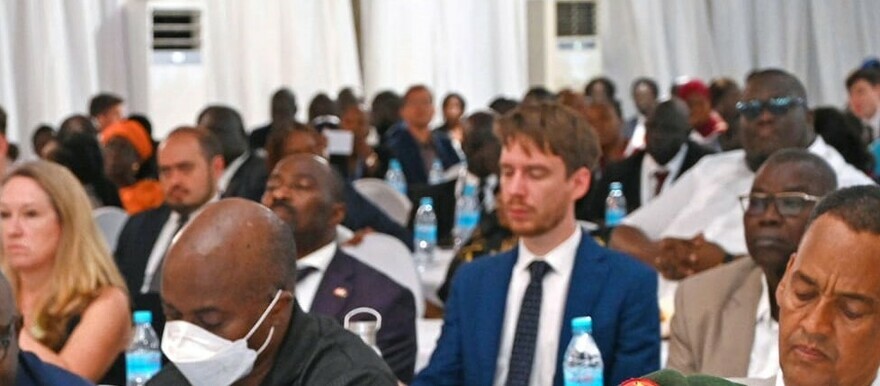The Transitional Justice Working Group, a coalition of civil society organizations, calls on the government to operationalize the resolutions of the transitional justice conference.
This came during a Transitional Justice and Accountability Mechanisms Workshop in Juba organized by the Transitional Justice Working Group with the support of PAX on Thursday.
South Sudan conducted a three-day transitional justice system conference in Juba where the principles for transitional Justice in the country were discussed.
The conference started on 15 May and concluded on 17t May under the theme, “Building Sustainable South Sudan Model for the Transition Justice. The conference has recommended that an enabling law be created among other resolutions.
Speaking at the workshop, Gordon Lam, the Chairperson of the Transitional Justice Working Group, called on the parties to renew political will towards implementation of chapter five of the peace agreement on transitional justice.
“Chapter five has been lagging behind schedule. This is because of the nature of our societies and the country at large. I believe the political will is important from the government side to accelerate the remaining milestone,” Lam said.
“The conference needs to be operationalized, the constitution needs to be operationalized and the processes of Commission for Truth, Reconciliation and Healing, including the formation of the Truth Commission, needs to be operational. So this requires political will and we want the government to lead on political will because without will no effort can yield,” he added.
Lam said after the conference that was organized by the government on transitional justice a few weeks ago, they thought it is important for civil society to come together to deliberate on the transitional justice mechanism, which is enshrined in Chapter 5 and aimed to achieve advocacy at the national and local level.
“We want to achieve that by working together, advocating for it and encouraging the public to live in peace and live in harmony so that peace can to the country,” he said.
Meanwhile, Edmund Yakani, the Executive Director for the Community Empowerment for Progress Organization (CEPO) said there has been a lack of political will from the government in the implementation of Chapter 5 of the peace agreement.
“Political commitment of the leadership of the government towards transitional justice is very low. They have a deficit in trust and confidence in transitional justice and I am worried that even the conference might end up as an exercise of ticking the box to show the international community that they are doing something on transitional justice,” he said.
“If you see the day after the workshop, which by now the legislation would have been passed by the council of ministers and would have been taken to the parliament as we are aware that very soon the parliament will see the enactment of the amendment in the electoral law,” he stressed.
Also, Nyachangkuoth Tai, a women’s activist, said it is important to add the voices of the women in the implementation of Chapter Five of the agreement as they were the ones who suffered a lot during the conflict.
“We have high rates of violence against women and girls due to cultural practices and due to some other reasons, and even in the conflict, women and children are the majority that get affected the most,” she noted.
Tai called on the parties to the agreement to expedite the implementation of Chapter 5 of the peace agreement.
Chapter 5 of the 2018 peace agreement in South Sudan provides for the implementation of transitional justice, in particular truth-seeking, reconciliation, healing, reparations and accountability using a range of interlinked mechanisms.
The agreement also provides for the establishment of a hybrid court to hold perpetrators to account by bringing South Sudanese and other African experts together to try the most serious crimes.
But South Sudan’s political leaders have repeatedly sought to block the establishment of this court.
Also, the commissioner for truth and healing has not yet been established.




